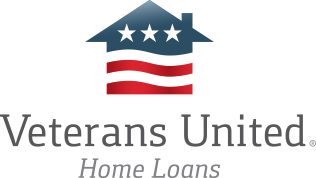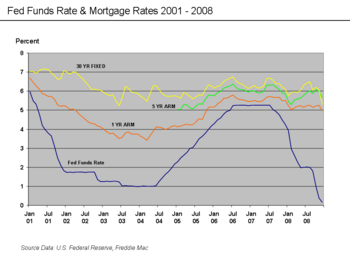Chances are, you've seen commercials boasting the benefits of a reverse mortgage: "Let your house pay you a monthly dream retirement earnings!" Sounds fantastic, ideal? These claims make a reverse mortgage noise practically too excellent to be real for senior property owners. However are they? Let's take a closer look. A reverse mortgage is a type of loan that utilizes your house equity timeshare out to supply the funds for the loan itself.
It's basically a chance for retirees to tap into the equity they've developed over many years of paying their home loan and turn it into a loan on their own. A reverse home mortgage works like a wesley remote regular mortgage in that you have to apply and get approved for it by a lender.
However with a reverse home loan, you do not make payments on your home's principal like you would with a routine mortgageyou take payments from the equity you've constructed. You see, the bank is providing you back the cash you have actually already paid on your home however charging you interest at the same time.
Appears simple enough, right? However here comes the cringeworthy fact: If you pass away prior to you have actually sold your home, those you leave are stuck with two options. They can either settle the complete reverse home mortgage and all the interest that's stacked up for many years, or surrender your house to the bank.
Like other types of home mortgages, there are various types of reverse mortgages. While they all basically work the very same way, there are three primary ones to understand about: The most typical reverse home mortgage is the Home Equity Conversion Home Loan (HECM). HECMs were produced in 1988 to assist older Americans make ends satisfy by allowing them to use the equity of their houses without having to leave.
Not known Details About How Many Mortgages In The Us
Some folks will utilize it to spend for expenses, vacations, house restorations and even to settle the remaining amount on their routine mortgagewhich is nuts! And the repercussions can be huge. HECM loans are kept a tight leash by the Federal Real Estate Administration (FHA.) They don't desire you to default on your home loan, so since of that, you will not get approved for a reverse home loan if your home is worth more than a certain amount.1 And if you do get approved for an HECM, you'll pay a significant home loan insurance coverage premium that safeguards the lender (not you) against any losses - who took over taylor bean and whitaker mortgages.
They're provided from privately owned or run companies. And because they're not managed or insured by the federal government, they can draw homeowners in with promises of greater loan amountsbut with the catch of much greater rate of interest than those federally guaranteed reverse home loans. They'll even offer reverse home mortgages that enable property owners to borrow more of their equity or include houses that surpass the federal maximum quantity.
A single-purpose reverse home mortgage is offered by federal government agencies at the state and regional level, and by not-for-profit groups too. It's a kind of reverse mortgage that puts guidelines and limitations on how you can use the cash from the loan. (So you can't invest it on an elegant trip!) Typically, single-purpose reverse home mortgages can just be utilized to make real estate tax payments or spend for house repair work.
The important things to bear in mind is that the loan provider has to authorize how the cash will be used before the loan is offered the OKAY. These loans aren't federally guaranteed either, so lenders don't have to charge home loan insurance coverage premiums. But because the money from a single-purpose reverse home loan has actually to be utilized in a specific method, they're generally much smaller in their quantity than HECM loans or proprietary reverse home mortgages.
Own a paid-off (or a minimum of significantly paid-down) home. Have this house as your primary residence. Owe absolutely no federal debts. Have the capital to continue paying home taxes, HOA charges, insurance coverage, upkeep and other home costs. And it's not just you that needs to qualifyyour home also has to meet particular requirements.
See This Report on Who Owns Bank Of America Mortgages
The HECM program likewise permits reverse home loans on https://zenwriting.net/gundanhwu0/mortgage-points-are-sort-of-like-totally-free-tosses-in-a-basketball-game-how condos authorized by the Department of Real Estate and Urban Advancement. Prior to you go and sign the documents on a reverse home mortgage, have a look at these 4 major disadvantages: You may be thinking of securing a reverse mortgage because you feel confident loaning versus your house.
Let's simplify like this: Imagine having $100 in the bank, however when you go to withdraw that $100 in cash, the bank only gives you $60and they charge you interest on that $60 from the $40 they keep. If you wouldn't take that "deal" from the bank, why on earth would you desire to do it with your house you've invested decades paying a home loan on? But that's precisely what a reverse mortgage does.
Why? Because there are charges to pay, which leads us to our next point. Reverse mortgages are packed with extra expenses. And most borrowers decide to pay these costs with the loan they will getinstead of paying them out of pocket. The thing is, this expenses you more in the long run! Lenders can charge up to 2% of a house's value in an paid up front.
So on a $200,000 home, that's a $1,000 yearly cost after you have actually paid $4,000 upfront of course!$14 on a reverse mortgage are like those for a regular home loan and include things like house appraisals, credit checks and processing fees. So prior to you know it, you have actually sucked out thousands from your reverse mortgage prior to you even see the first cent! And since a reverse home loan is just letting you tap into a percentage the value of your house anyhow, what takes place when you reach that limitation? The cash stops.
So the quantity of cash you owe goes up every year, monthly and every day till the loan is settled. The advertisers promoting reverse home mortgages like to spin the old line: "You will never owe more than your home is worth!" But that's not exactly true due to the fact that of those high interest rates.
10 Simple Techniques For What Is Today's Interest Rate For Mortgages

Let's say you live until you're 87. When you die, your estate owes $338,635 on your $200,000 house. So rather of having a paid-for home to hand down to your enjoyed ones after you're gone, they'll be stuck with a $238,635 expense. Possibilities are they'll need to offer the house in order to settle the loan's balance with the bank if they can't manage to pay it.
If you're spending more than 25% of your income on taxes, HOA charges, and family expenses, that implies you're home bad. Reach out to one of our Endorsed Regional Providers and they'll help you browse your alternatives. If a reverse mortgage lender informs you, "You won't lose your house," they're not being straight with you.

Think of the factors you were considering getting a reverse mortgage in the first location: Your spending plan is too tight, you can't manage your day-to-day costs, and you don't have anywhere else to turn for some additional cash. Suddenly, you've drawn that last reverse home mortgage payment, and then the next tax expense comes around.